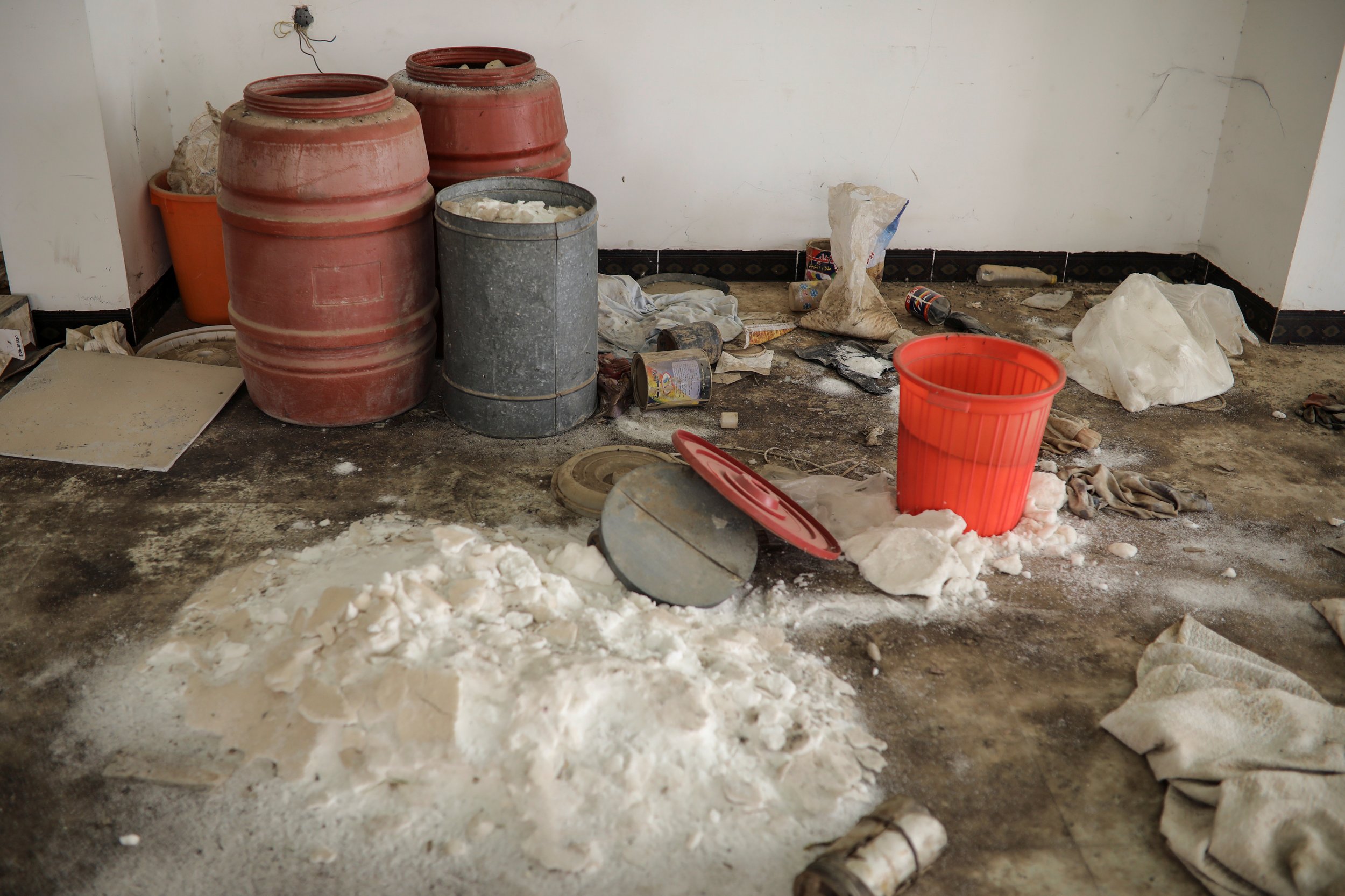
The Islamic State group used prisoners as "human guinea pigs," carrying out chemical weapons experiments in order to plan for attacks against the West, documents found in Mosul have revealed. The papers detailing the tests, which led to the agonizing deaths of prisoners, were discovered at Mosul University in January when it was recaptured by Iraqi special forces. The documents verified by United States and British forces were detailed by The Times in a report published Saturday.
Related: ISIS Inspired By Times Square Crash, Warns of Vehicle Attacks on NYC Tourist Hub
Prisoners had their food and water contaminated by the sprinkling of chemicals found in easily accessible pesticides. The U.S. and Britain now fear that the same methods could be used on a larger scale to contaminate food supplies in the West.
In one of the experiments detailed, a man was gradually poisoned with thallium sulfate, a colorless, tasteless toxin made famous by the Agatha Christie mystery, The Pale Horse. ISIS described it as an "ideal lethal poison" and its test subject, having been given it over a period of 10 days, suffered nausea, fever, swelling of his stomach and brain and eventually an excruciating death.
Another chemical compound tested, found in nicotine and extractable from cigarettes, was injected into a subject, causing the victim to lose consciousness in a matter of seconds and die just two hours later.
The tests mirrored human experiments carried out by the Nazis in concentrations camps during World War II.
"This is a horrifying throwback to the Nazis who would test nerve agents on live humans," Hamish de Bretton-Gordon, a U.K. chemical weapons expert, told The Times. "During the Second World War, the Nazis conducted thousands of deadly experiments with mustard gas on prisoners at Sachsenhausen concentration camp, near Berlin."
The discovered report also contained recipes for producing the chemical weapons, which are believed to have been passed on via handbooks to ISIS recruits in the West. The weapons have already been widely deployed by ISIS against Iraqi forces in the group's stronghold of Mosul. ISIS seized the ancient Iraqi city in 2014 but now controls just a few neighborhoods after being driven out by the Iraqi military.
It was reported last week that U.S. intelligence now believes ISIS has brought all of its chemical weapons experts from across Iraq and Syria to form a "chemical weapons cell" in its new stronghold on the Syrian-Iraqi border.
Uncommon Knowledge
Newsweek is committed to challenging conventional wisdom and finding connections in the search for common ground.
Newsweek is committed to challenging conventional wisdom and finding connections in the search for common ground.
About the writer
Jason Le Miere is from the British island of Jersey, which has absolutely no relation to the Garden State, other than ... Read more
To read how Newsweek uses AI as a newsroom tool, Click here.








